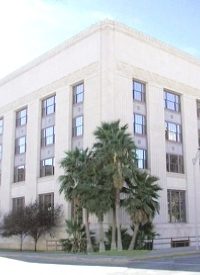
The number of immigration and drug cases along the U.S.-Mexico border has reached such a serious level that the need for federal judges in Texas and other border states is desperate. On Jan. 17, the Houston Chronicle reported that federal officials are now calling it a judicial emergency.
And the Chronicle’s Jan. 22 edition called the situation “a threat to national security that deserves top priority in Washington.”
The enormous caseload, and delays in nominating and confirming judges has created an oppressive burden on border courts. Chief Justice John Roberts wrote in an annual report on the judiciary about the “urgent need” to address the problem. “This has created acute difficulties in some judicial districts,” In his report, he accused the White House and Senate of failure to nominate and confirm judges in a timely fashion.
What that means in Texas is this. There are seven vacancies for U.S. judgeships, four of those serving the border region in El Paso, Laredo, and San Antonio. The case burden of those courts has to be shifted to other already overloaded courts.
The President has nominated U.S. Magistrate Judge Diana Saldaña and attorney Marina Marmolejo to fill two vacancies in Laredo but both await Senate confirmation. Obama hasn’t made nominations for vacant seats in San Antonio or El Paso.
And Texas Senator John Cornyn is seeking to add more judges, but with Congressional spending cuts looming, the job of filling the vacancies may languish.
Tragically, the death of Judge John Roll, murdered two weeks ago in Tucson, underscores the gravity of the situation. Roll was at the shopping center to talk with Representative Gabrielle Giffords about the court clog. Chief District Judge Fred Biery of the Western District (Texas), reported that Roll’s wife claimed the judge was there “trying to get extra help.” Biery added, “Perhaps out of this tragedy people will focus on what is going on down here.”
According to Roberts, immigration cases rose nine percent in federal courts nationwide, but 73 percent of those were filed in the border districts of Texas, New Mexico, Arizona and California.
In the Western District, 2010 brought a ten percent increase in the number of cases, bringing the total to 8244. The district includes San Antonio, Del Rio, Presidio and El Paso. In the Houston-based Southern District, (Laredo and the Rio Grande Valley) the caseload increased to 8167. The tally in these two districts alone topped 16,000 cases.
Judge Biery said the number of cases varies disproportionately along with border. The federal judge in Del Rio handles a whopping 2000 cases a year while four judges in El Paso split 4000 cases annually. Because of the judgeship vacancies in Laredo, the number of cases pending at the end of 2010 was 5875.
But that’s nothing compared to Arizona. The U.S. District of Arizona was hammered with a 67 percent increase in case filings. The district of New Mexico saw an 18 percent increase.
The situation in Arizona is the most severe. Apart from the court crisis, two Arizona sheriffs have called for immediate help because the number of illegal border crossings exceeds law enforcement capabilities of their two counties. In The New American, Jan. 26, James Heiser outlined the desperate conditions causing Cochise County Sheriff Larry A. Dever to say, “Get the military on the border and get them here now.”
Heiser’s article included a warning from Sheriff Paul Babeu of Arizona’s Pinal County. Babeu had joined Sheriff Dever in alerting the government of the problem and perhaps said it best, “The problem has not gone away. Do not be lulled into a false sense of security.”
Consequently, no relief can be expected in the courts unless security is first tightened at the border.
Photo: U.S. Court House in El Paso, Texas



